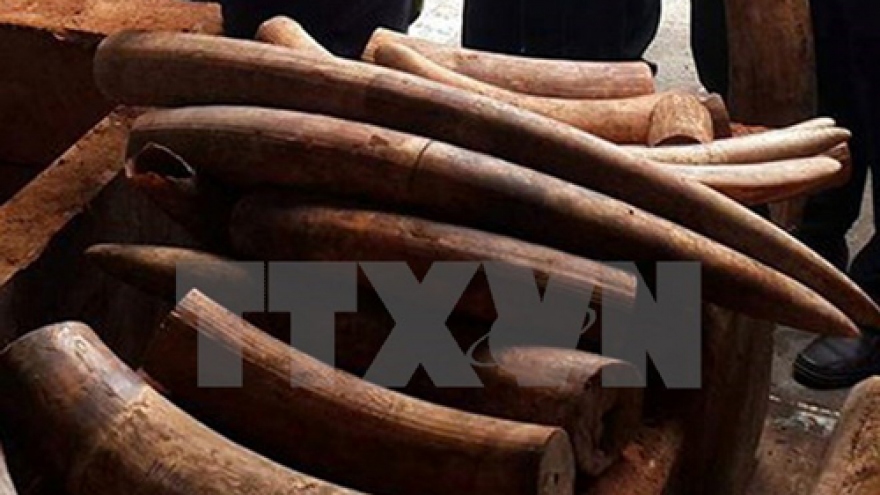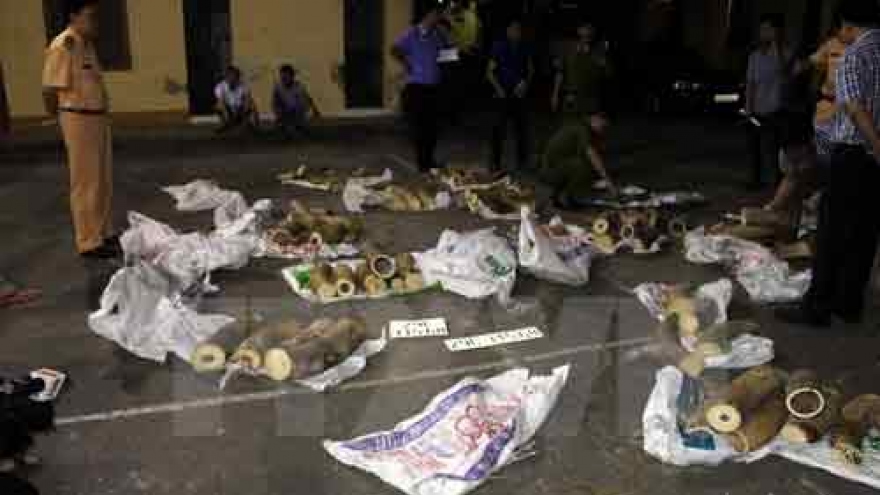Vietnam a port for smuggled elephant tusks
Following multiple cases of elephant tusks being smuggled through Vietnam, authorities have confirmed the country as an intermediate port in the illegal shipment of the wildlife parts.
 |
Authorities have also seized a considerable volume of elephant tusks this year.
In the most recent case, the Ho Chi Minh City Customs Department busted two containers of African elephant ivory worth nearly VND40 billion (US$1.76 million) at the Cat Lat Port on Wednesday of last week.
The shipments came from a man in Kenya and were transiting through Vietnam, expected to be received in Cambodia.
Officers have also confiscated a further 2.5 tonnes of elephant tusks in two other cases in the southern city this month, with the individuals responsible criminally charged.
In August 2015, the illicit transportation of 2.3 tonnes of ivory was stopped by authorities at the Tien Sa Seaport in the central city of Da Nang.
According to Le Dinh Loi, deputy head of the Ho Chi Minh City Customs Department, the tusks were mainly covered in wax, plaster, or clay and stored along with different types of wood inside containers.
Customs officers at all Ho Chi Minh City ports have been ordered to carry out thorough inspections of all shipments in order to prevent further smuggling, Loi added.
Smaller quantities are often smuggled by air, said Le Tuan Binh, deputy chief of the Customs Office at Tan Son Nhat International Airport in Ho Chi Minh City.
The products are stored in checked baggage and usually weigh less than 100 kilograms, the official continued.
Vietnam is a trans-shipment point
According to the anti-smuggling police official, elephant tusks sell for between VND30 million ($1,323) and VND40 million ($1,764) on the black market.
The smuggled wildlife parts primarily come from Africa as they can be collected from both male and female African elephants, he elaborated.
Vietnam does not have a large market for ivory due to the state’s strict policy, Vu Hai Chau, representative of the WCS, said about the findings of a research conducted by international organizations.
The Southeast Asian nation is considered an intermediate destination for elephant tusks before they are imported into mainland China, Taiwan, Hong Kong, Thailand and Japan among others, Chau continued.
A trans-shipment point is included in the smuggling chain to disguise where the wildlife parts originate from, the representative explained, adding that a fake business would be created as the owner of the shipments.
Vietnam is a preferred intermediary due to its favorable location and multiple international seaports and airports, Chau said.


